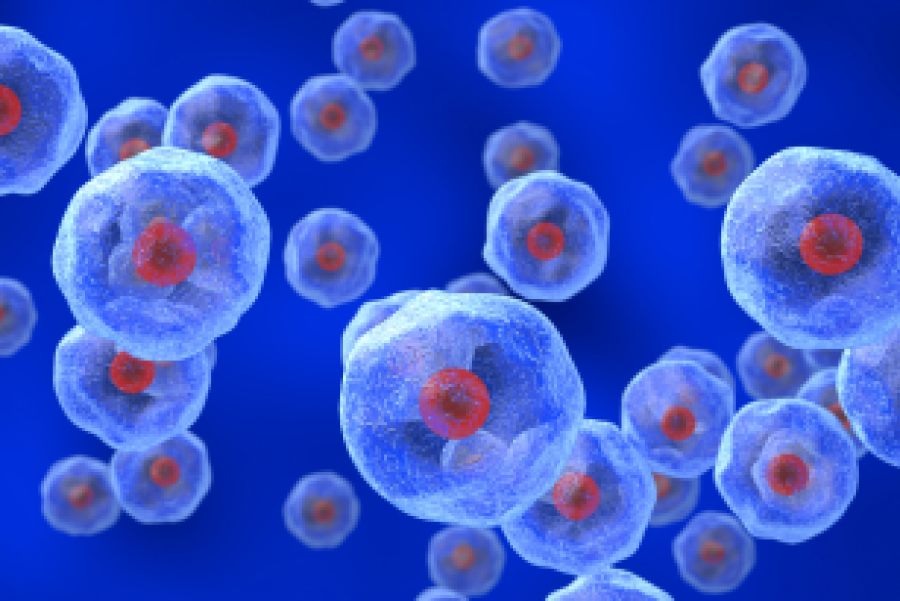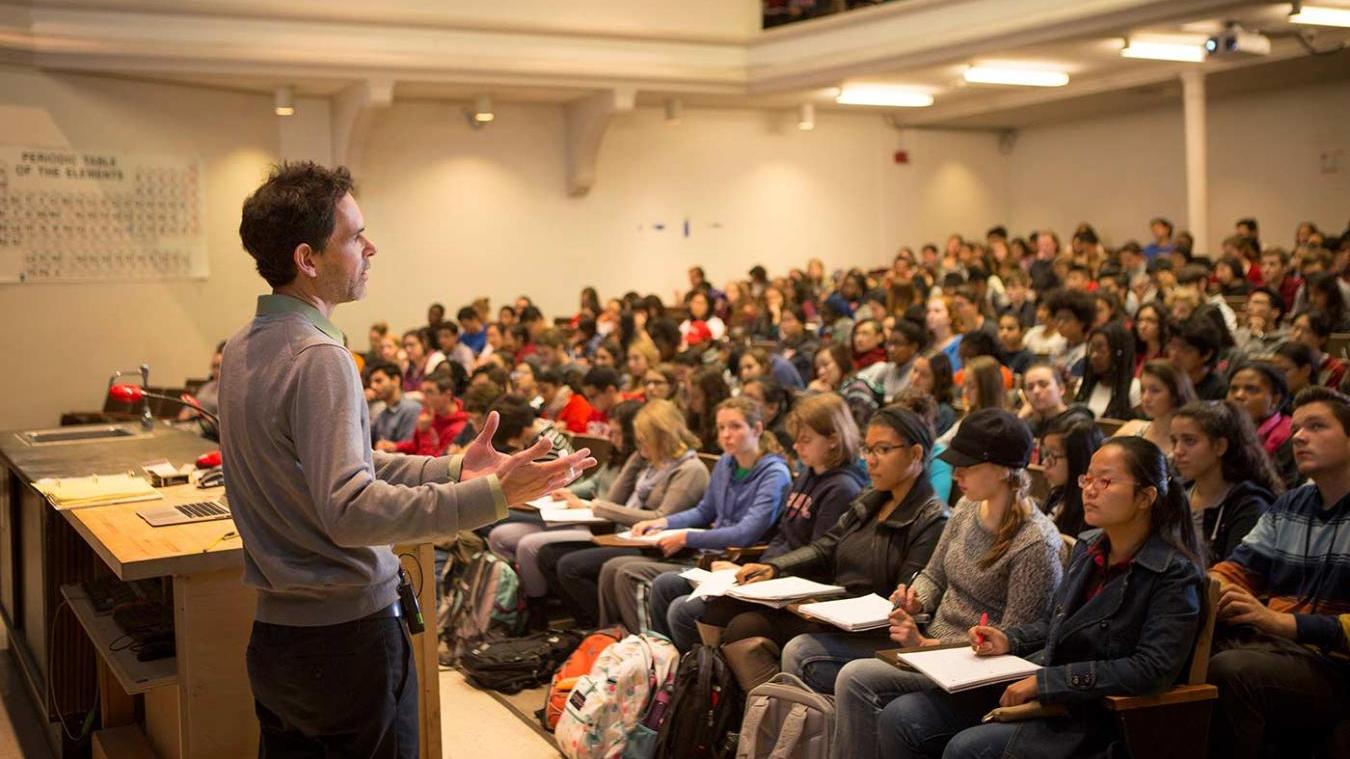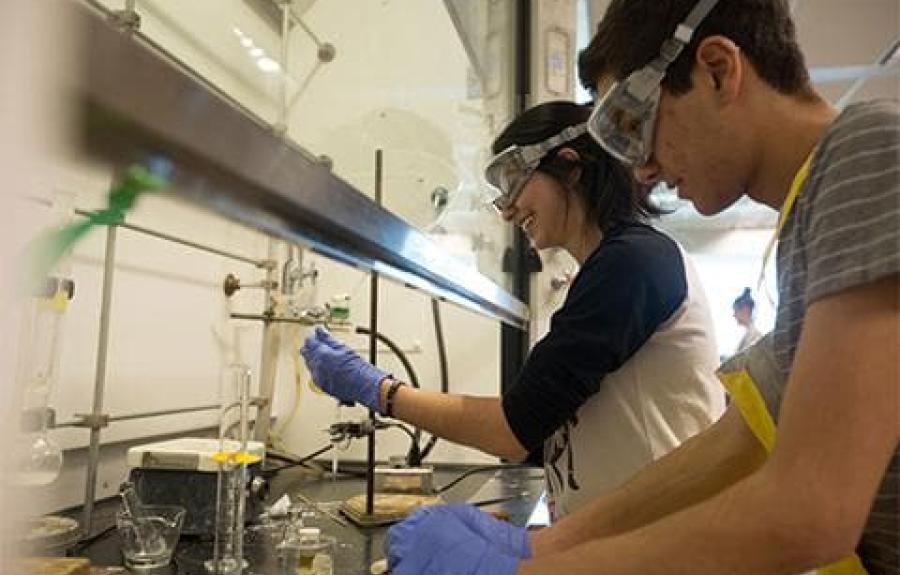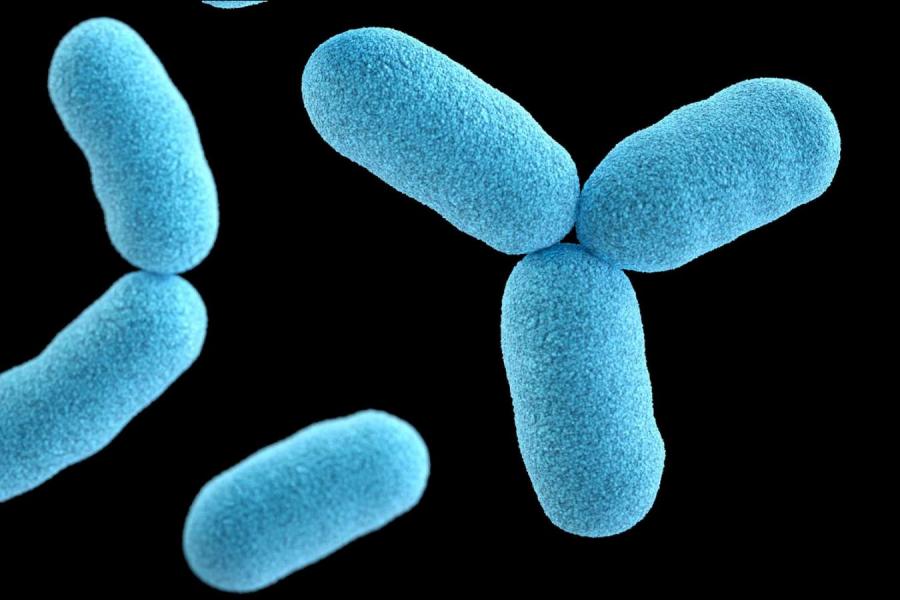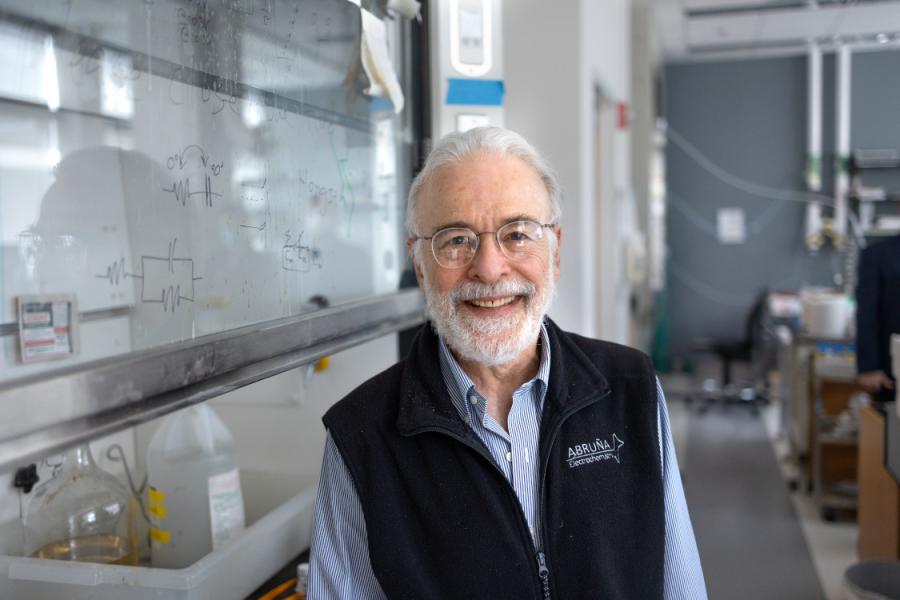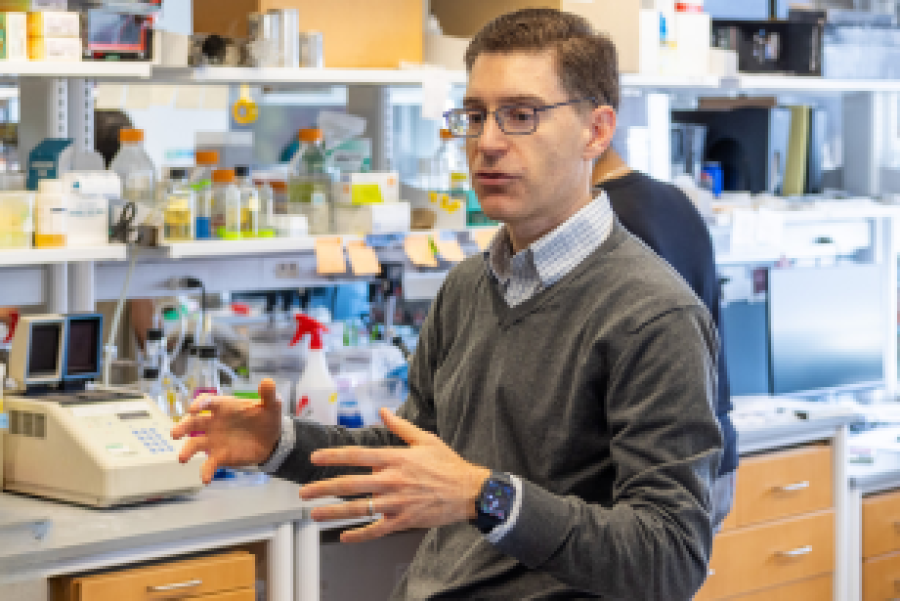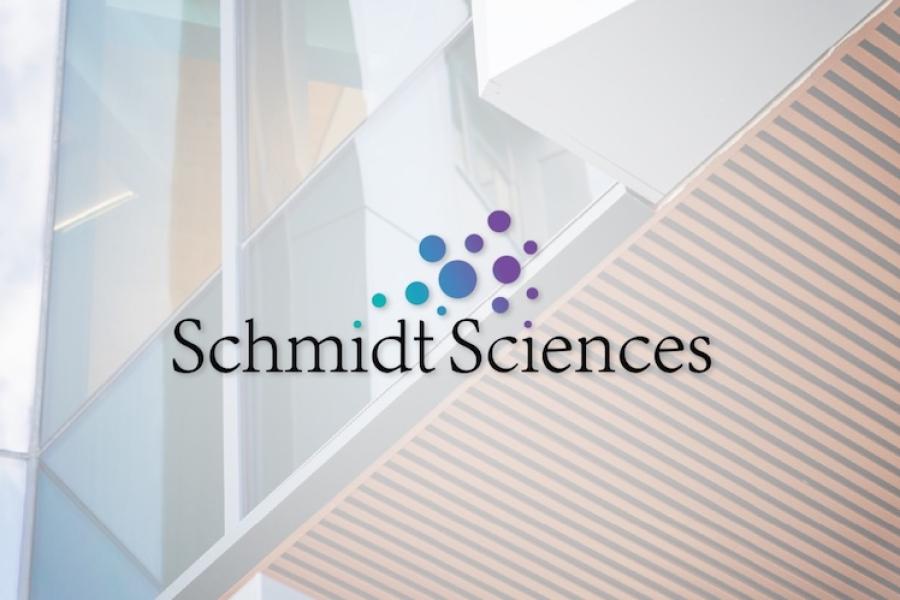Graduate Program
As a graduate student in Chemistry & Chemical Biology, you will receive training across the chemical sciences while focusing on one of five in-depth programs of study: Analytical, Inorganic, Organic, Physical, or Theoretical. You will conduct advanced research with our distinguished faculty or you can join a laboratory at one of the state-of-the-art research facilities at Cornell, such as the Cornell NanoScale Science and Technology Facility (CNF) or Cornell High Energy Synchrotron Source (CHESS)
Nearly all graduate students work as Teaching Assistants in undergraduate Chemistry & Chemical Biology courses in their first year in the program. Admission to the graduate program guarantees at least five years of full financial support as long as you show satisfactory progress toward your Ph.D. degree.
